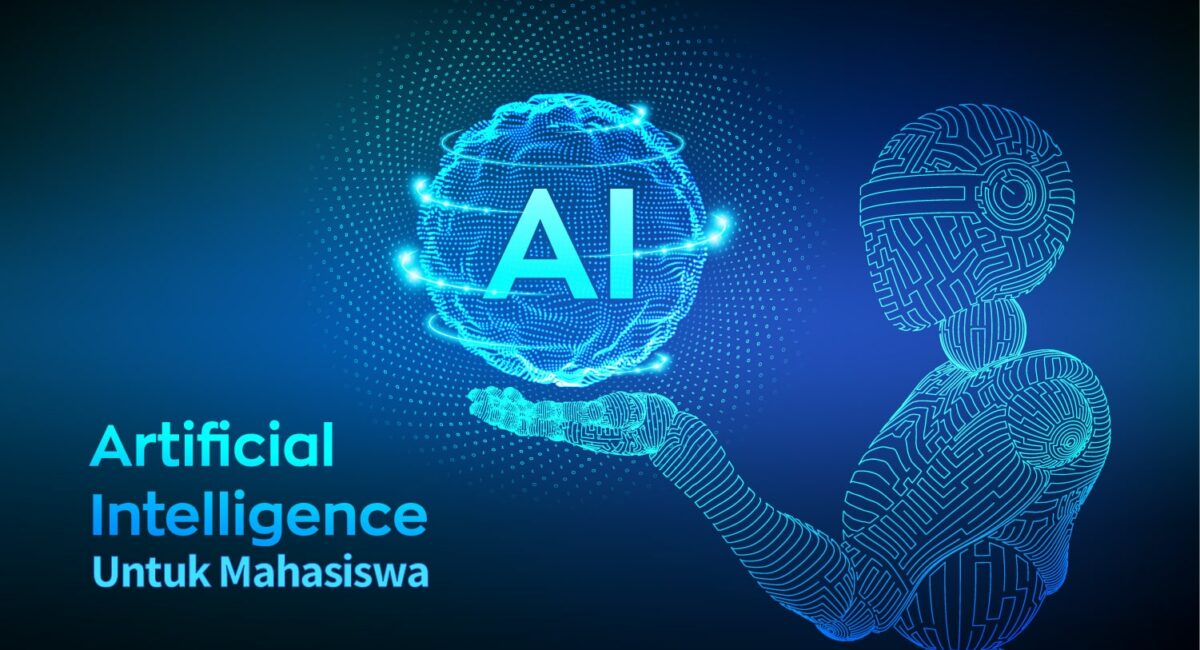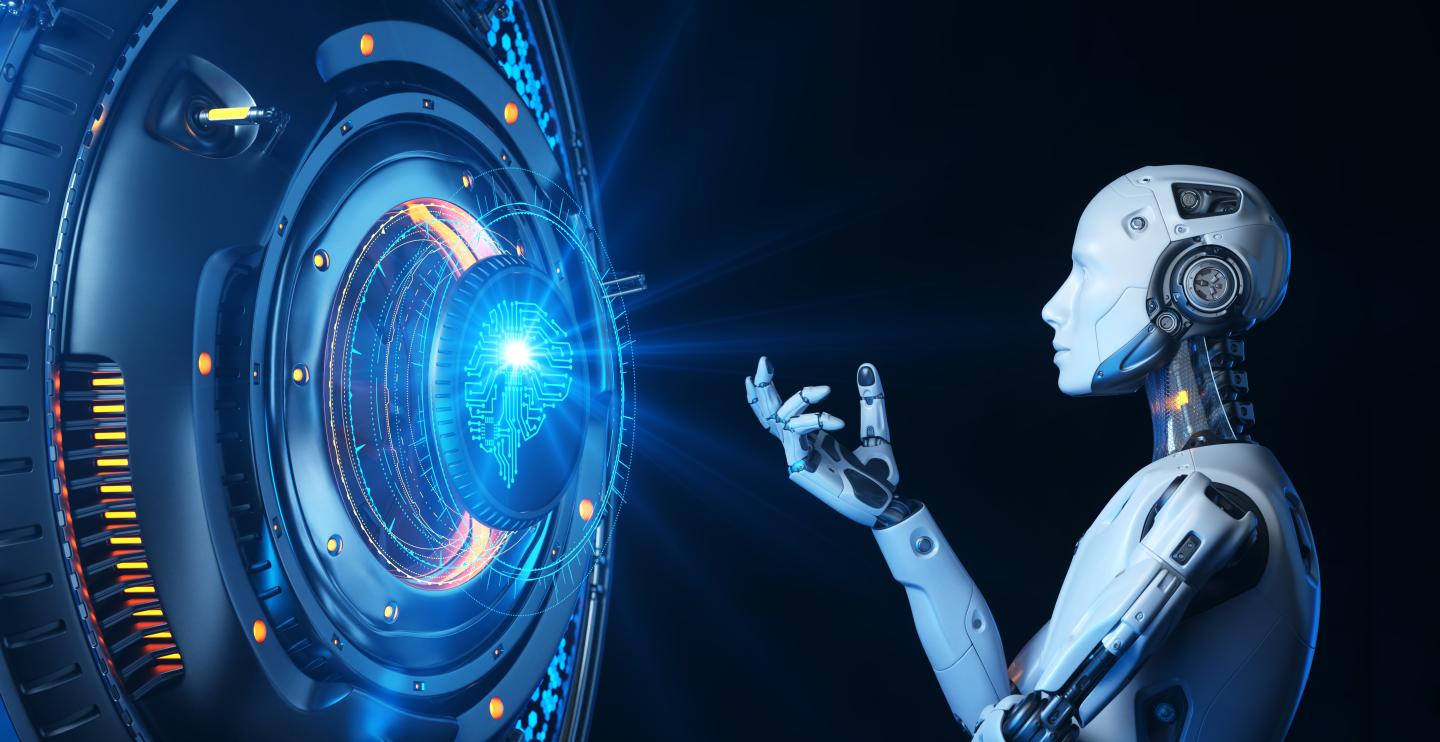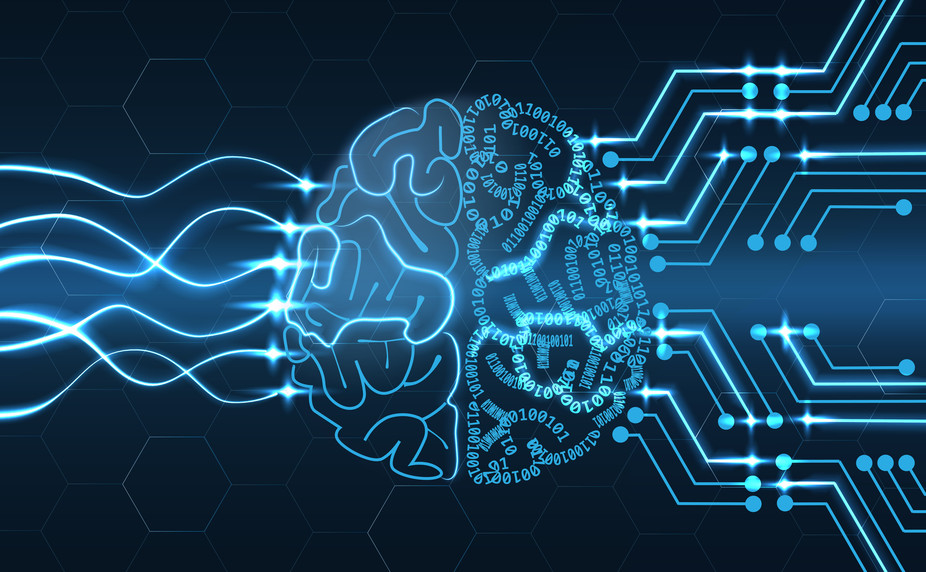We may generate income when you click on links to our partners. Learn More.
What is synthetic general intelligence (AGI), and why does it matter? As one of the most talked-about subjects in technology today, it has actually triggered a race amongst top companies like OpenAI and Google to turn this advanced principle into reality. Understanding AGI is very important because it has the prospective to revamp markets, affect our society in profound methods, and change the way we interact with innovation. Here's what you need to learn about what it may be able to do, how it may change markets and fields, and the considerable difficulties facing its advancement.
KEY TAKEAWAYS
• AGI varies from standard AI in crucial ways in that it would have the ability to believe, find out on its own, and adjust to new obstacles like humans unlike standard AI, which is created for specialized tasks and runs within a minimal scope. It needs humans to upgrade and refine capabilities. (Jump to Section).
• Once it becomes a truth, AGI would be able to make exceptional advances in several fields, including healthcare, research study, and finance sectors. (Jump to Section).
• Creating AGI is difficult due to the research study challenges that include technical, ethical, and societal issues. Addressing these difficulties is main to keeping the safe and favorable advancement of this innovation. (Jump to Section)
Featured Partners: Artificial Intelligence Software
Find out more

TABLE OF CONTENTS

What is Artificial General Intelligence (AGI): A Clear Definition.
Understanding AGI vs Traditional AI.
Potential Applications of Artificial General Intelligence.
Challenges in Artificial General Intelligence Research.
3 Introductory AGI Courses to Consider.
Frequently Asked Questions (FAQs).
Bottom Line: Why Knowing What Is Artificial General Intelligence Matters.
What is Artificial General Intelligence (AGI): A Clear Definition
Artificial basic intelligence, or AGI, describes a type of synthetic intelligence (AI) that can interpret, find out, and perform any cognitive job that a human can do. Unlike today's AI, which is constructed to manage particular tasks like recommending products or processing information, AGI would have the ability to adapt to brand-new challenges and use understanding throughout different fields. In other words, this advanced type of AI would think and reason like a human. While AGI holds fantastic possible, it's worth keeping in mind that it is still an idea today, with no totally developed systems readily available yet.
Key Capabilities of Artificial General Intelligence
AGI would have a variety of capabilities that imitate human intellectual functions, so it can carry out tasks beyond the narrow focus of the current AI tools in the market. Some key capabilities include the following:
Human-Like Reasoning: The innovation would be able to comprehend and make choices the way humans do. It would believe seriously, solve issues, and create options based on its own experiences and previous interactions, comparable to how we use previous knowledge to new circumstances.
Solving Unfamiliar Problems: One of AGI's strengths is its possible to deal with new problems. Unlike conventional AI, which is trained to carry out particular tasks, AGI would have the capacity to handle problems it hasn't been straight trained to fix. It might find out how to approach a completely brand-new challenge, much like humans do when confronted with something we have actually never ever come across before.
Self-Learning and Adapting: AGI might tweak its abilities and gain from experience, without the need to be by hand upgraded each time. It would observe and analyze data, gain from mistakes, and find better methods to finish tasks gradually. This implies AGI could adjust to brand-new circumstances and get better at tasks by itself.
Using Knowledge Across Different Areas: AGI would have the ability to take what it finds out in one location and use it to other tasks. For example, if it found out how to solve mathematics problems, it could utilize that knowledge to resolve obstacles in other fields, like science or company. The ability to transfer abilities throughout different areas is something human beings do naturally and would make the innovation versatile in diverse sectors.
Understanding and Responding to Emotions: Recognizing and reacting to human feelings would likewise be within AGI's abilities. This would be essential in settings where understanding people's sensations matters, such as healthcare, client service, or social circumstances. By reacting to emotions properly, AGI would be better equipped to work with people in an effective method.
Understanding AGI vs Traditional AI
The table below offers a picture of the significant distinctions between AI and standard or narrow AI by underscoring their capabilities, versatility, and current status.
AGI would have the capability to think, discover autonomously, and adapt to brand-new challenges like humans. However, it is still theoretical and has actually not been realized yet. On the other hand, traditional AI is developed for specific tasks and operates within a fixed scope. It can not adapt to brand-new jobs without human input.
For example, an AGI might learn to identify medical conditions, then use that knowledge to establish individualized treatment plans-and even change its approach based on the patient's progress. Additionally, it could apply this analytical ability to jobs in entirely various fields, such as developing company methods or advising on environmental conservation. In contrast, traditional AI, like a diagnostic tool, can just evaluate medical data for specific conditions. It can not adjust to other locations or enhance on its own.
Potential Applications of Artificial General Intelligence
While AGI isn't here yet, its prospective applications cover many fields and hold excellent guarantee of extreme developments in numerous sectors. Without being limited to specific jobs like narrow AI, AGI would be highly flexible and might use its abilities to fix multi-disciplinary issues. It might conquer difficulties currently beyond the capabilities of existing AI applications.
Transforming Healthcare
AGI would change the game in health care by diagnosing complex and rare diseases with higher precision, even in cases where symptoms are unclear or overlap with multiple conditions. It could create extremely individualized treatment plans by studying patient history, hereditary details, and real-time health data. In addition, AGI could speed up drug discovery, identifying possible treatments in weeks instead of years by processing massive datasets and running predictive simulations.
Advancing Scientific Research
In scientific research, AGI would be able to simulate experiments, analyze intricate datasets, and generate hypotheses. It could accelerate breakthroughs in quantum physics, genomics, and climate science. By integrating understanding from various domains, the innovation could discover connections and options that may otherwise go unnoticed by standard AI.
Improving Industry
Organizations in the commercial field might use AGI to enhance effectiveness in real-time by managing whole supply chains. It would predict and resolve disturbances before they happen. In manufacturing, it might manage autonomous factories, optimizing production procedures while preserving safety and quality requirements. Its capability to get used to changing circumstances would make it an indispensable tool in commercial environments.
Enhancing Business Strategy
AGI could improve company decision-making by assessing market patterns, consumer habits, and linked.aub.edu.lb operational information to find opportunities and risks. In contrast to narrow AI systems, AGI would innovate options to tough service problems, such as handling financial uncertainty or forecasting long-lasting market shifts. Its capability to gain from varied sources would empower companies to stay competitive.
Redefining Finance
In the financial sector, AGI might increase forecasting precision by spotting patterns in large amounts of financial data, so investors and organizations can make informed decisions. It would likewise be able to spot scams in real-time by acknowledging subtle anomalies that conventional AI systems may miss out on. Additionally, AGI might construct more robust monetary models, factoring in complex variables and circumstances to mitigate threats.
Challenges in Artificial General Intelligence Research
Developing AGI is among the most enthusiastic goals in innovation, however it comes with numerous difficulties. These challenges include technical, ethical, and societal locations, making AGI development a detailed and multi-faceted process. Overcoming the following difficulties is identical to making sure safety, maintaining ethical standards, and carefully planning how AGI's introduction and usage will affect individuals, markets, and society as a whole:
Making AGI Truly Flexible: AGI would need to handle a large range of issues and adapt to brand-new scenarios, similar to humans. Building a system of flexibility is exceptionally hard because existing AI tools are not created to think or learn at this level of sophistication.
Massive Computing Needs: To reproduce human intelligence, AGI would need huge amounts of computing power to process information from varied sources quickly. Finding out how to make such systems powerful and links.gtanet.com.br efficient enough for real-world usage is a substantial difficulty.
Understanding Human Intelligence: We do not completely understand how human thinking works, especially complex aspects like instinct or awareness. Without this understanding, it's challenging to develop devices that can replicate human-like thinking.
Making AGI Safe and Ethical: AGI could potentially be misused, like to create prejudiced systems or hazardous tools like self-governing weapons. Researchers need to make certain that AG is constructed properly and follows stringent ethical guidelines. This is a difficult job that requires global collaboration.
Keeping It Under Control: There's a threat AGI might act in ways we do not anticipate, specifically because it would have the capability to find out and change gradually. Ensuring that these systems stay aligned with human values and are safe to use is among the greatest obstacles in AGI research study.
Effect on Jobs and Society: If AGI ends up being a truth, it might replace tasks or trigger financial inequality by benefitting some groups more than others. Preparing for these social impacts is simply as important as constructing the innovation itself.
High Costs and Resources: Researching AGI demands a lot of cash, time, and specialist knowledge. Not all organizations have these resources, slowing down development and leaving smaller companies out of the race.
3 Introductory AGI Courses to Consider
Familiarizing yourself with AGI can offer you an one-upmanship, whether you want to advance your career in AI or just want to remain notified about emerging innovations. The following introductory courses can assist you acquire a much deeper understanding of what synthetic general intelligence is, so you can solidify your understanding about this appealing AI advancement.

Artificial General Intelligence (AGI): An Introductory Course on Udemy
This Udemy course provides an essential understanding of AGI, ideal for novices with no prior experience. The course covers relevant subjects, consisting of the structures of AI, the fundamentals of AGI, and the current patterns in the field. It also checks out the benefits, dangers, and challenges related to AGI, equipping you with insights into what the advanced technology can accomplish. The entire course consists of 15 lectures and can be finished in roughly 45 minutes. Upon conclusion, you will receive a certificate to reinforce your credentials in the job market. This initial course expenses $24.99.
Intro to Artificial General Intelligence (AGI): Future of AI on Udemy
Udemy's initial course uses an extensive summary of AGI for students with no technical background. It goes over the historical context and foundation of AGI, the differences between narrow AI and AGI, and ethical factors to consider surrounding its development. In addition, it resolves future patterns in AI and AGI, clarifying the obstacles and chances that lie ahead. Spanning one hour and 46 minutes, the course includes 39 lectures, on-demand video, and downloadable resources. It likewise has a practical test at the end to enhance your understanding. You will be awarded a certificate as soon as you finish the course. It is available as part of Udemy's premium plans, beginning at $20 per month, or as a different purchase of $49.99.
Artificial General Intelligence (AGI) on Udemy
This Udemy course brings a clear and concise intro to the topic, with on-demand videos and 22 lectures. It elaborates on major AGI principles and the role of robotics in AGI advancement. It likewise takes a look at the ethical, software, and hardware difficulties in developing AGI. The course supplies tests to test your understanding and a certificate of completion. Priced at $44.99, it is made for learners at any level, making it available and valuable for anybody who wishes to discover more about AGI.
Frequently Asked Questions (FAQs)
Achieving AGI might change markets, enhance decision-making, and result in substantial improvements in technology. However, it also raises issues about principles, job displacement, and the requirement for correct guideline to make certain it is developed safely and properly.
Experts disagree on how far we are from achieving AGI. Sam Altlman of OpenAI thinks in 2025, AI representatives might join the labor force, eventually paving the method to AGI development. On the other hand, a study of AI researchers puts the typical estimate around 2047. Despite rapid AI developments, present systems are still restricted to narrow tasks and lack the broad, flexible reasoning of humans-so AGI is likely still years away.
The idea of AGI completely replacing people is still debated. Despite the fact that it's most likely that AGI will help us by taking over repetitive tasks, there is a possibility that it could displace specific jobs. That said, rather than totally changing people, AGI is anticipated to work alongside us, dealing with technical responsibilities while we concentrate on tasks that need creativity and empathy. At the end of the day, the effects of AGI will depend upon how society chooses to handle and integrate it.

Bottom Line: Why Knowing What Is Artificial General Intelligence Matters
Understanding artificial general intelligence is vital due to the fact that this innovation might alter markets, solve tough issues, and transform how we utilize AI. But as we begin to develop AGI, we must thoroughly resolve a number of difficulties, including technical issues, ethical issues, and its overall influence on society. By discovering AGI's possible and dangers, we can work toward making certain it is produced responsibly and utilized in manner ins which would benefit everyone.








